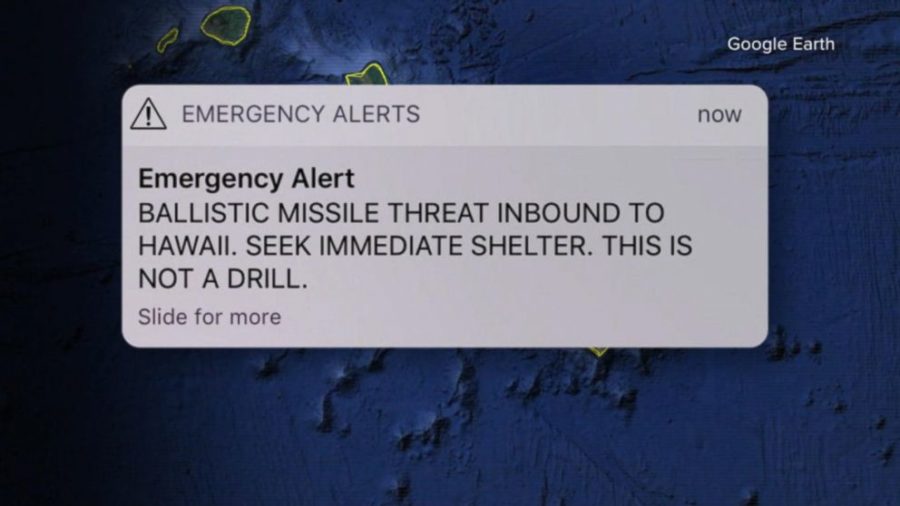Missile mayhem
January 19, 2018
Imagine waking up to an alert warning of imminent danger headed straight towards you and everyone you know. This was the terrifying reality for Hawaiians on Jan. 13, as a warning of a ballistic missile threat buzzed into their phones.
Luckily, this was just a false alarm, there was no actual threat against Hawaii, though we cannot say that no damage has been done. The alert sent Hawaii’s residents into mass panic as citizens fled their homes, running through the streets to seek shelter. Some found refuge in bunkers made during WWII, while one father attempted to protect his daughter by placing her down a manhole. Citizens are obviously outraged at the sloppy work that caused them to worry for their lives.
Hawaiian officials have apologized for the panic it caused citizens, and have already changed protocol regarding emergency messages for missile threats. Officials say that the error was made during a routine drill that went south when a worker pressed the wrong button, sending the infamous message out to the state.
Even with the apology, citizens are angry about the fact that officials knew within three minutes the life-threatening alarm was nothing more than human error, yet waited 38 minutes to inform the masses of terrified civilians. A Hawaiian senator, Tulsa Gibbard, tweeted a message in just 12 minutes after the initial alert, trying to calm citizen’s nerves, but says the emergency officials should have done more.
“It’s an epic failure in leadership,” said Gibbard to ABC news. “It was unacceptable that this went out in the first place, but the fact that it took so long for them to put out that second message to calm people … is something that has to be fixed and corrected with people held accountable.”
Since Saturday, many are just thankful to be alive and with their loved ones. While Hawaiian citizens calm from the scare, the Hawaiian government will continue to work to gain back the trust of their people.









